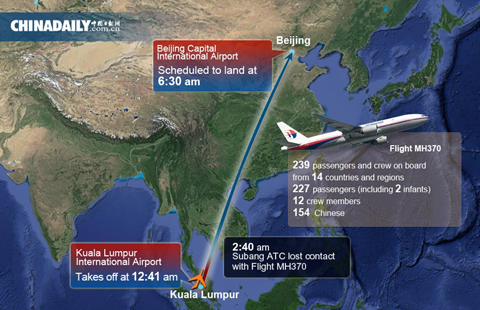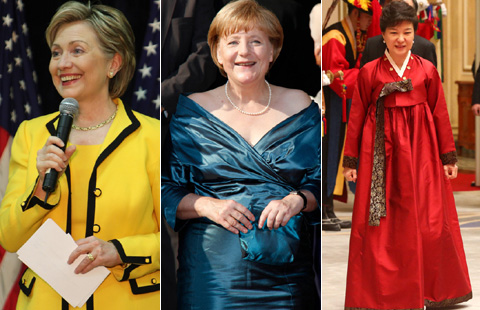Hong Kong, NYC will be magnets for wealthy: report
Updated: 2014-03-07 13:21
By Michael Barris in New York (China Daily USA)
|
|||||||||
|
Street view of Los Angeles downtown area. Wang Jun / China Daily |
Call it a trans-oceanic changing of the guard.
In another 10 years, Hong Kong Special Administrative Region will overtake Singapore as the city that matters most to Asia's wealthy, according to a new report. And in a big trans-Atlantic change, New York will displace London as the world's premier destination for the ultra-rich.
"Despite the proliferation of economic success stories across Asia, the dominance of China is unavoidable and Hong Kong's unofficial role as the portal between its big brother and the rest of the world will ensure the growing dominance of the city over the next decade," the 2014 Wealth Report by UK real estate consultancy Knight Frank said.
The report, released this week, is based on a survey of the attitudes of more than 23,000 ultra-wealthy individuals, those with $30 million or more in net investable assets. These ultra high net worth individuals, or UHNWI, are worth on average $68 million each, and represent more than $1.5 trillion in combined wealth, according to the report.
The report found that the rich in China keep getting richer. Many, however, are looking for ways to give more of their money to deserving causes.
"Many UHNWI in China are definitely searching for new ways to give more back to society," said Lawrence Wong, the alternative chief executive and head of business for private banking with Bank of China International Ltd, who is a member of Knight Frank's global wealth panel.
As China's wealth increases, raising the level of philanthropic activity, so does its level of luxury-goods spending, the report showed. It quoted Torsten Muller-Otvos, CEO of Rolls-Royce Motor Cars, as saying that much of the prestigious automaker's record 2013 performance was driven by emerging markets, with sales up 11 percent in China.
Among respondents with Chinese clients, 45 percent said that their clients' interest in French vineyards was growing, reflecting wealthy Chinese' newfound appetite for wine.
The slowdown in the Chinese economy has prompted speculation over the challenges that the world's second-largest economy will confront in the years ahead. China's leadership has said its goal is to shift its economy away from dependency on exports and large-scale government investment and toward domestic consumption and the opening up of consumer credit.
The country's political leaders need to "engender confidence in their ability to steer the nation on a course towards sustainable economic expansion", according to the report.
Even with the hurdles facing China, its influence should not be underestimated, according to Jim O'Neil, of Goldman Sachs Group Inc. "Although growing at a rate of around 7 percent, less than during the past 30 years, China will add an extra $1 trillion to global GDP every year this decade," O'Neil said. "It's the equivalent of adding another Germany and Japan to the world by the end of the decade."
Ouliana Vlasova, chief analyst at WealthInsight, said the outlook for wealth creation in China is positive. "In terms of future hotspots, China is encouraging the development of the financial sector, which is the prime source of wealth and prosperity for many global markets," the analyst said.
WealthInsight, a website providing data on high net worth individuals, forecasts that the number of billionaires in China will skyrocket 80 percent by 2024, to 322 from 179 last year. The number of US billionaires is projected to surge 21 percent to 503 from a world-leading 417 in 2013. The number of UHNWI will skyrocket 80 percent in China in the next 10 years.
Reforms announced by the Chinese government designed to invigorate the state-owned financial sector and allow private ownership of banks will "inevitably lead to the availability of credit to the growing middle class", Vlasova said. This trend will see their spending power rise while providing a new source of revenue for UHNWI, according to the report.
The growth of UHNWI in China and India, coupled with a 144 percent increase in Indonesia and a 166 percent hike in Vietnam, will help push the total number of UHNWI in Asia up by 43 percent. Despite a slowing in the pace of US growth, the US will still top the charts for the number of UHNWI in 2023, with an expected 47,468 individuals, three times as many as China. In terms of centa-millionaires and billionaires, the US is also on top, with 13,807 and 503 respectively.
"Even if things do slow down a bit, I don't think there is cause for concern," Wong said. "US-China trade keeps on growing, business is becoming more transparent and Chinese UHNWI are becoming more comfortable dealing with international markets."
The proportion of respondents expecting the status quo to be maintained rose to 34 percent - reflecting ongoing concerns about the robustness of the economic recovery and whether last year's equities bounce can be sustained, according to the report.
Three quarters of the survey's respondents - private bankers and wealth advisors - said their UHNWI clients' net worth had increased. Just 4 percent said it had fallen.
The report said the key Chinese real estate markets staged notable recovery in 2013 after a slight pause in 2012.
michaelbarris@chinadailyusa.com
(China Daily USA 03/07/2014 page2)
Most Viewed
Editor's Picks

|

|

|

|

|

|
Today's Top News
US investigates terrorism concerns over Malaysian plane
Missing plane may have turned back
DPRK kicks off parliamentary election
Malaysia Airlines releases 8th Statement
777 vanishes: Malaysia Airlines says so far no evidence of any wreckage
Xi calls for all-out efforts over lost plane
'I was supposed to be on that plane'
US puts big 'effort' into China ties
US Weekly

|

|















